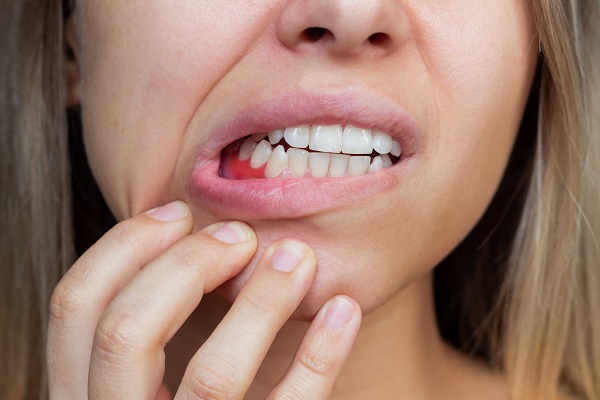The Benefits of Laser Therapy to Treat Gum Disease

Preventing gum disease is one of the most important steps you can take in your oral health. You have heard a lot about keeping your teeth clean to avoid cavities, but your gums are just as critical. If you have developed the signs that suggest you have gum disease, you need to see a periodontist. The good news is there are successful treatment options to restore your gums. Laser techniques are among the most viable.
A look at gum disease
In the early stages, this disease is called gingivitis. It occurs when bacteria invade the teeth and gums, causing inflammation and bleeding. As the disease progresses, it becomes periodontitis, which can begin to spread and affect the bone. The gums can recede and pull away from the teeth. Eventually, the teeth can become loose and fall out.
Bone loss can also occur when periodontitis is present. The infection that causes it can also spread and affect other parts of the mouth and head. It can even go throughout the body and get into the bloodstream. Severe gum disease can contribute to cardiovascular problems and a weakened immune system.
Preventing the disease
Before thinking about how to treat gum disease, it is good to know how to prevent it in the first place. With proper hygiene, the illness should never show up. Brushing at least twice a day will clean off the sticky substance known as plaque. This ensures that it will not harden and turn into tartar, which can destroy the gums. Daily flossing will remove food particles and reduce the risk of bacteria from forming on the teeth and gums.
How laser therapy works
For advancing gum disease, the periodontist may use techniques such as scaling and root planing. Here, the dentist does a deep clean, removing plaque and tartar from the teeth, gums, and below the gumline. Traditionally, dentists used a tooth to perform this. Laser dentistry employs a laser to get rid of this buildup and clean the teeth and gum. The laser may even remove diseased gums in serious cases of periodontitis.
Advantages of using lasers
Laser methods to treat gum disease have some benefits over other approaches. The dentist can have better results with lasers than with traditional dental tools. It is also less invasive than other options and will therefore not cause as much swelling. The dentist will not likely have to use an anesthetic to perform this treatment either. Another advantage is that there is less bleeding, plus the recovery time is generally faster. The patient can expect good results and be on the road to having healthier gums.
You can achieve your oral health goals
You can overcome the effects of gum disease and enjoy good oral health once more. If you have this illness, see a periodontist right away. Along with guiding you through preventive steps, the dentist can treat the disease. Laser therapy is becoming more popular and is an effective way to remove plaque and tartar from your teeth and gums. Make an appointment today so you can start your treatment.
Are you considering getting gum disease treatment in the Summit area? Get more information at https://www.summitperioimplants.com.
Check out what others are saying about our dental services on Yelp: Gum Disease in Summit, NJ.
Related Posts
Appearance may be one of the first things people think about when it comes to tooth replacement. However, improved appearance is just one of the many benefits of replacing missing teeth. Tooth replacement can be key to improving not only how you feel about your smile but also boosting your oral health.Whether one chooses dentures,…
Wondering whether a periodontist can treat receding gums? Read on to learn more. Due to the increasing awareness about dental hygiene, many people are worried about gum recession. This issue is not just cosmetic: It may signal underlying dental problems that could cause serious health problems if ignored. Although routine dental care such as brushing,…
Preparing for dental implant recovery is just as important as getting ready for the dental implants themselves. A good recovery sets the stage for successful implants that can last the rest of your life, with few additional changes or fixes. Here is what to expect after a dental implant procedure so you can adjust your…
Dental crown lengthening is a procedure that aims to contour gum tissue at the base of a tooth. Oftentimes, the goal is to perform this procedure to make one's smile appear straighter, thus solving cosmetic imperfections. In other cases, dental crown lengthening is done in order to secure the base of a dental crown that…
